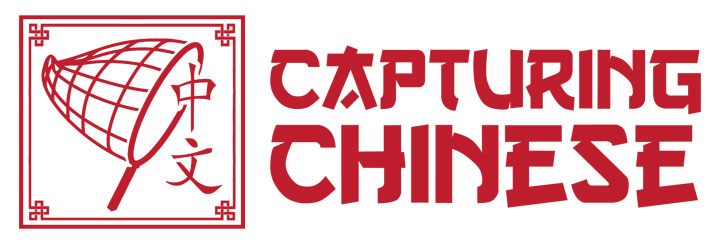Capturing Chinese continues to bring you the greatest Chinese writers of all time. We have shared the life and works of Lu Xun to you before. This week, his younger brother, Zhou Zuoren is our pick. Zhou Zuoren (Chinese: 周作人) was born on January 16, 1885 in the province of Shaoxing, Zhejiang. Zhou is a renowned essayist and translator. He was one of the most controversial writers of his time.
The young Zhou Zuoren attended Jiangnan Naval Academy. Like his brother, he went to Japan in 1906 in pursuit of higher education. He first studied Ancient Greek with the aim of translating the gospels into Classical Chinese. Zhou also mastered the Japanese language and learned English literature in scrutiny. He planned to study civil engineering at Rikkyo University but instead, attended lectures on Chinese philology (the study of language in written historical sources) by then famous scholar-revolutionary Zhang Binglin. In the land of the rising sun, he met his Japanese wife. They moved to China in 1911 to teach at various educational institutions.
Zhou was a man of conviction and modern ideals. He joined his brother in clash for literary reform. They sought the transformation of the formal written language, from classical Chinese to vernacular Chinese. In the midst of political turmoil, they succeeded on this endeavor. They were both key figures in the May Fourth Movement.
Zhou’s perspectives embodied both democratic and individualistic literature. He clearly differentiated between “democratic” and “popular” literature. He reasoned that while the common people may understand popular literature they do not necessarily understand democratic literature. He thus made a distinction between the commoners and elites. In 1918 he wrote an article that called for "humanist literature" in which "any custom or rule that goes against human instincts and nature should be rejected or rectified". He cited awful ancient traditions such as children sacrificing themselves for their parents and wives buried alive to accompany their dead husbands.
His literary contributions to writing include short essays in vernacular Chinese published in La Jeunesse (also known as The New Youth), which was a very influential and widely-circulated magazine of the 1920s. Zhou deterred from the steady, customary writing style. He adapted a refreshing writing style with a more conversational tone.
Zhou published over two dozen books of essays in various lengths and themes. His writing career started and was anchored on “scientific common sense”, inspired by Western influences. He later gradually shifted to his country’s societal issues, customs and traditions. In 1930, he wrote 《水里的东西》(Things in the water), where he discusses ‘river ghosts’. According to tradition, these ghosts are water-dwelling entities disguised in small, adorable human forms that play on the riverbanks and lure people into the river. They pull and drown victims to seek release and have their victims become their substitution. This work was more of a curiosity than intellectual interest and was not one of Zhou’s best. Zhou’s finest works are characterized by humor with deep sadness, most often over the cruelty of ignorance, whether directed against the self or other. In 1934, he wrote a related essay titled 《贵的生长》(“The Aging of Ghosts”). In this essay he asks the question of whether or not ghosts age in the after life by quoting from a number of contradictory written sources. He seals the essay stating accounts from the diary of a man who corresponded with his dead family via a planchette. The spirits eventually abandon the man and leave him more alone than ever. This piece starting from the amusing question about ghosts ends in a ridiculous ending showing that the original question is rather absurd. Today, his works and philosophies continue to influence modern China.
Zhou is also known as a prolific translator. He translated numerous Japanese and Greek literatures into classical Chinese. Some of his notable translations were Euripides' Tragedies, Sappho's lyrics, Kojiki, Sei Shōnagon's Makura no Sōshi, Shikitei Sanba's Ukiyoburo, a set of Kyogen and Ali Baba. He was the first to translate such great foreign literatures into Chinese.
In 1937, Japan and China finally entered total war. With this development, many of Zhou Zuoren’s colleagues fled south to escape the Japanese occupation. Zhou Zuoren stayed in Beijing stating that to leave would be to leave his family, all women and children, in a desperate situation. Instead he stayed in Beijing and thus became a “great traitor to the nation”. While resisting to cooperate with the Japanese occupational forces, a threat on his life caused him to accept a position as chancellor of Beijing University in 1939. In 1941, he accepted a position with the puppet government in northern China. While he firmly resisted the Japanese ideology, his participation in the puppet government came under scrutiny after the war ended.
In the aftermath of the Sino-Japanese war in 1945, Zhou was arrested under the reign of Chang Kai Shek. He was accused of alleged collaboration during the Japanese rule in North China. He Qifang (何其芳), Mao Dun (矛盾), and Feng Xuefueng (冯雪峰), who were intellectuals from the Communist party, testified that Zhou had been a traitor to the country because he lost his faith in national salvation. The Nanjing court was under pressure due to a national campaign by the Communists to compete with the ruling Guomingdang for political legitimacy so they overlooked Zhou’s contributions to the Chinese during the occupation and sentenced him to 10 years in prison. However, he was released in 1949 through a pardon by the Chinese Communist Party.
A year after his release, he moved to Beijing and continued to write under pseudonyms. He died in May 6, 1967 during the Cultural Revolution.
Zhou Zuoren's The Aging of Ghosts
